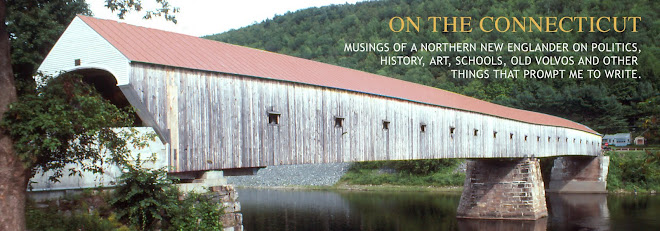The arguments seem to make sense at first. School vouchers allow low-income children to attend better schools. They get to use their allotment for schooling that will make them more productive citizens. It seems so egalitarian.
In practice, however, it doesn’t work that way at all. Here in New Hampshire, they are called “Education Freedom Accounts". The program was sold as a way to help low-income students in bad public schools transfer to better private schools.
What actually happened is that 75% of the students getting voucher money were already enrolled in private and religious schools.
What vouchers have done is to reinforce class discrimination. And wealthy Americans understand that. For all their claims of promoting educational equity, they understand that it gives their children an advantage over working-class children. Their children get to attend private schools on the public dime that leads them to better universities. After college, their children end up with better employment opportunities. And they want it that way. It’s one of their two biggest reasons for championing school vouchers.
The second reason is even more odious. Greed! Vouchers also slash their private school tuition costs at the expense of working-class taxpayers. And now that the limit of income eligibility has been completely eliminated, New Hampshire’s wealthiest families get their tuition paid with your tax dollars.
State Education Commissioner Frank Edelblut has no interest in providing a fair education for all New Hampshire school children. He has advocated for expanding the school voucher program and increasing the amount of public tax dollars going to private and religious schools. He projected that the program would cost $3.3 million. It actually cost $27 million in its first two years of operation.
Here are the facts:
Private school vouchers don’t work in rural New Hampshire.
Vouchers simply don’t provide school choice for students living in rural areas of New Hampshire. If these students are even able to use a voucher, their families probably can’t afford or manage the long, costly commute to a private school.
Private school vouchers don't fully serve low-income students.
The cost of tuition, books, uniforms and fees at private or religious schools that accept vouchers usually exceeds the voucher amount. This makes these schools unaffordable for most low-income families.
Private school vouchers undermine New Hampshire’s public schools.
Vouchers divert desperately needed public resources away from our public school systems to fund the education of a few students at private schools. We could better serve our children by using these funds to make the public schools stronger.
Private school vouchers do not save money for New Hampshire taxpayers.
The reduction in students from those public schools from which students leave for private voucher schools does not decrease their operating costs. It costs the same to run a public school for 200 students as it does for 210, but vouchered students take their share with them. This creates public school deficits and tax increases.
Private school vouchers do not lead to improvements in public schools.
To the contrary – by siphoning off public school funds, vouchers make it more difficult for public schools to make improvements.
As a result, most New Hampshire school vouchers are used by wealthy families whose children never attended public schools in the first place. These families can afford to pay private school tuition without help from working-class taxpayers. Private school vouchers are simply a way for wealthy families to get a taxpayer-funded discount on their private school tuition. And our public schools, which educate 90% of the state’s students, pay the price.
Vouchers not only widen the educational gap between working-class and wealthy families. They reinforce economic disparity.



